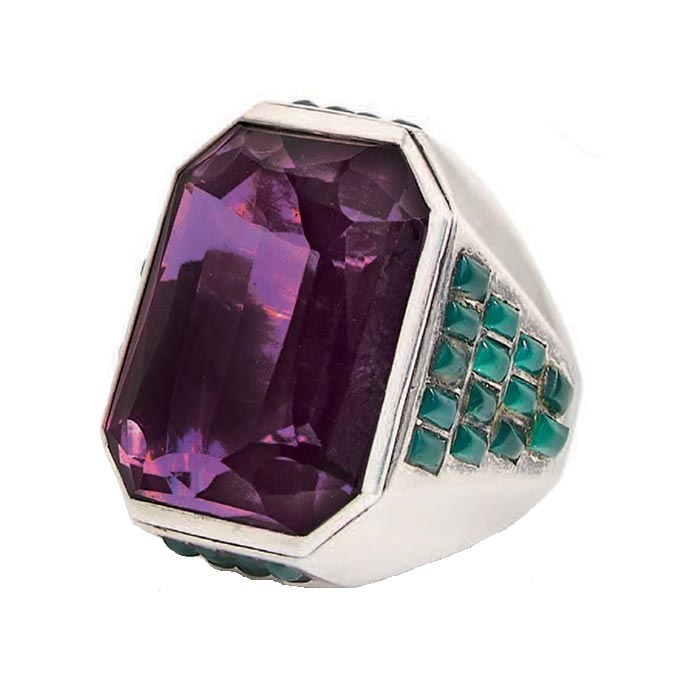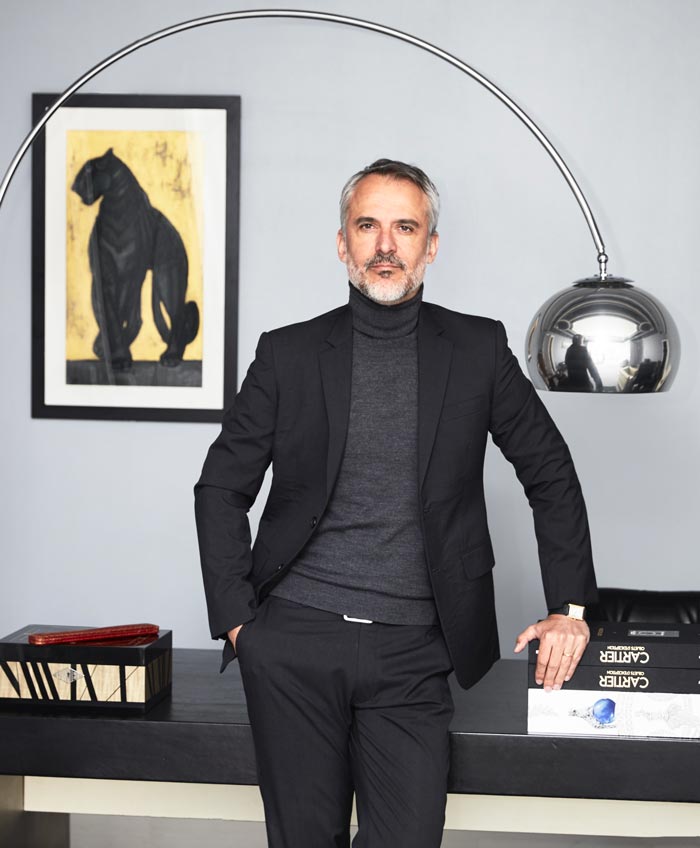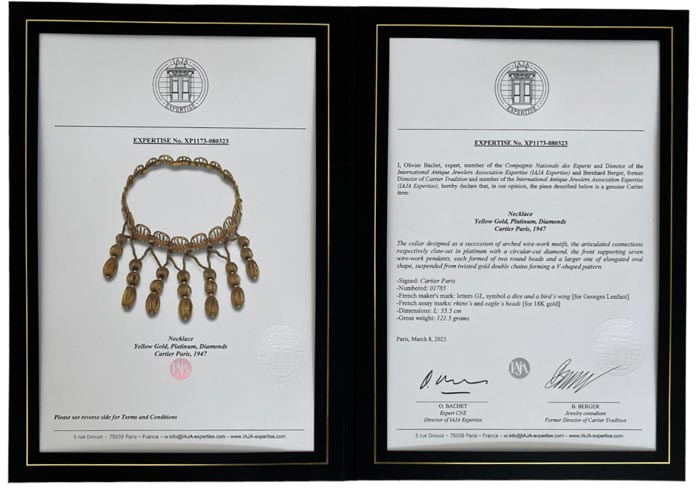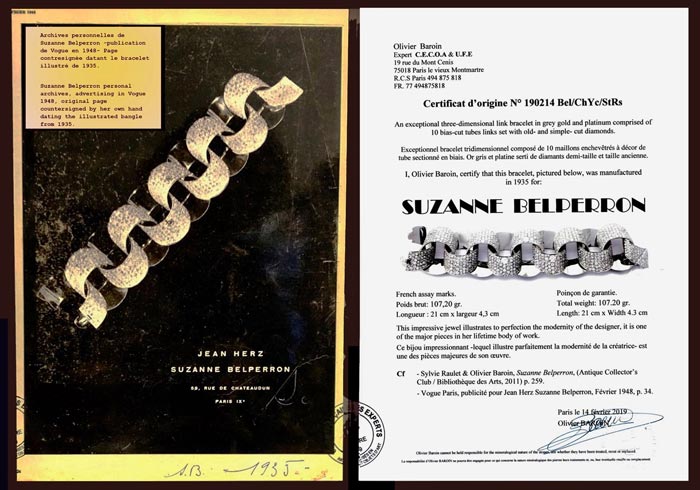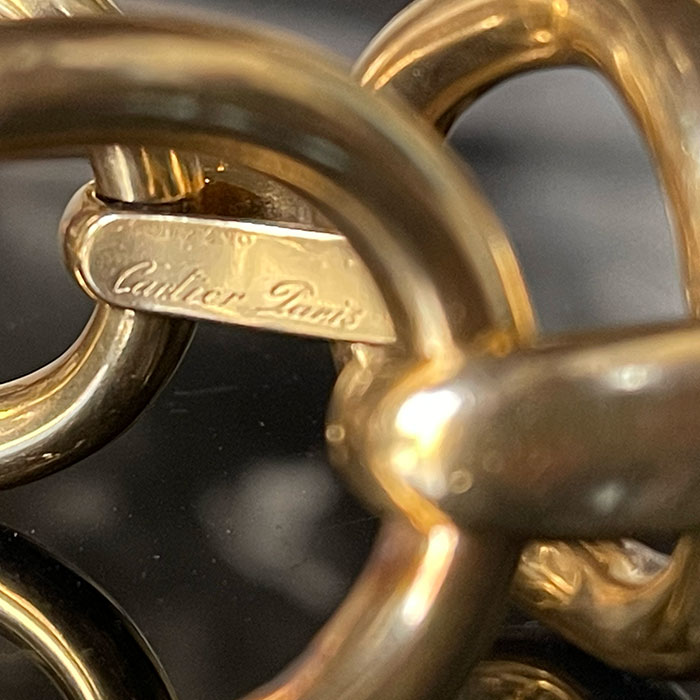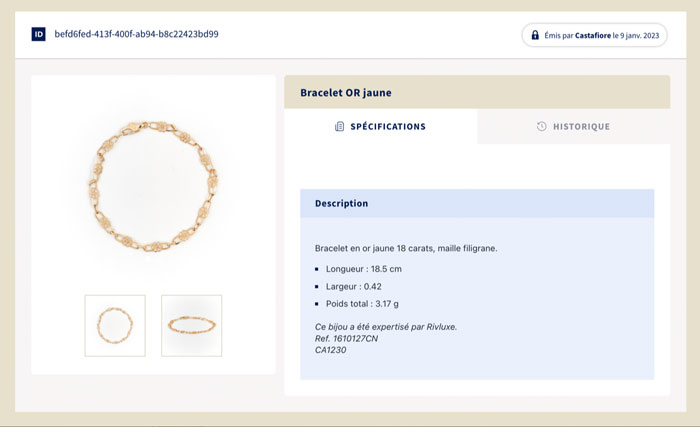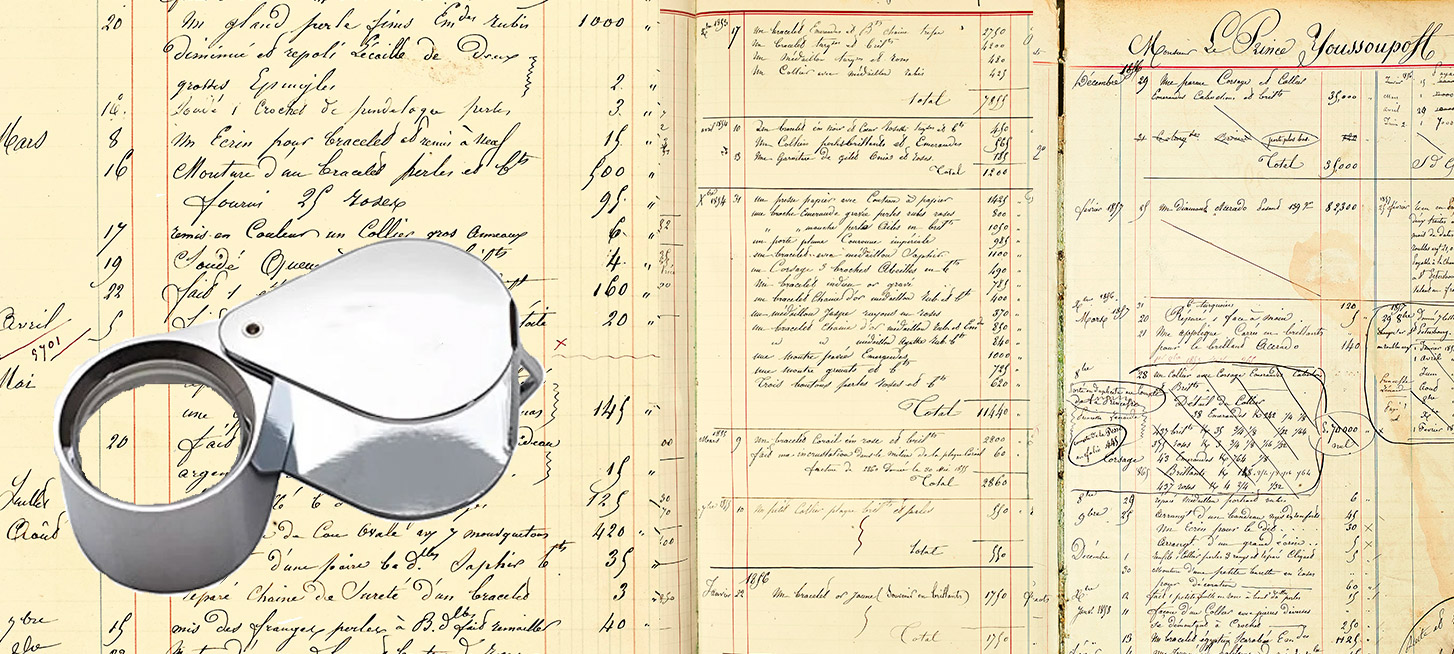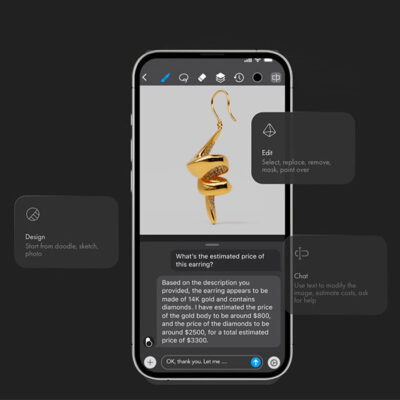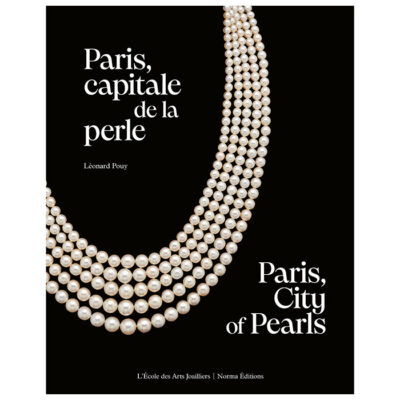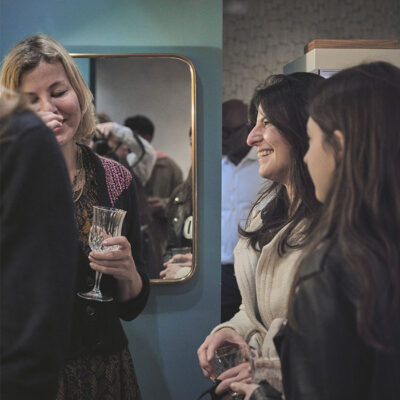Business
18 March 2023
Share
Getting authentication for your jewelry
Amid exponential increases in the prices of old and second-hand jewelry, buyers on the other side of the world and a booming counterfeit industry, the authentification of second-hand jewelry is now more important than ever before.
By Sandrine Merle.
“At the last Hong Kong trade fair, all our buyers kept asking for certificates, even for medium-quality pieces. These days we’re no longer selling a piece of jewelry, we’re selling a piece of paper,” laments one dealer. And yet this phenomenon has long been the norm in the watchmaking world: “No one would dream of buying a Rolex without a certificate,” says Olivier Bachet, an expert and author on the subject of Cartier. What’s more, the authentification can immediately increase the price: an anonymous Art Deco bracelet worth €20,000 can reach €80,000 if authenticated by Cartier. Olivier Baroin, Suzanne Belperron’s expert, cites an unattributed signet ring in silver, amethyst and chrysoprase cabochons that was sold in November 2017 for 3,700 euros against its original estimate of €600 to €800. Following its attribution to Suzanne Belperron, it went on to fetch €75,000 euros (original estimated at €8,000 to €10,000) at Aguttes in October 2018.
The rise of the authentification certificates
Previously, the word of any expert or specialist at an auction house was considered as gospel by buyers. So what happened? The answer is “globalization”, with its online purchases based on a simple photo and the arrival of hordes of investors on the market. “The further away it is, the more expensive it is and the more guarantees are needed to reassure buyers”, is how Violaine d’Astorg, director of the jewelry department at Christie’s, sums up the situation. Many also point to the emergence of Chinese investors still unfamiliar with the complex second-hand market. “Transformations and reassemblies abound and above all, there are now perfect copies with false hallmarks, false signatures and false numbers,” warns Thomas Torroni-Levene, keeper of the René Boivin temple and archives.
Where to find the best authentification ?
“We’re the only ones who can guarantee the authenticity and integrity of a piece of jewelry,” says Pierre Rainero, Cartier’s director of heritage and style. It’s true that the great brands that maintain their own archives – Mellerio, Cartier, Boucheron, Chaumet and Van Cleef & Arpels – are the only ones who can provide the ultimate proof, namely a specific order in somebody’s name or the drawing corresponding to the jewel. However, these companies no longer issue certificates of authenticity, probably because of the lack of time and because they buy the most beautiful jewels for themselves. Two exceptions are Boucheron and Van Cleef & Arpels – on condition that you pay between €1,000 and €2,000. “The result is that all the players in this second-hand market are working against each other,” said one professional.
How to access the best appraisal?
“The online world has given rise to pseudo-experts who will certify anything and everything,” explains Olivier Baroin. “As a result, nothing is valid anymore…” The simplest solution is to seek out whoever owns the archives or has access to them, such as Marguerite de Cerval for Mauboussin, Pam Lipkin for Paul Flato, Olivier Baroin for Suzanne Belperron or Thomas Torroni-Levene for René Boivin. Nothing matches the huge on-the-ground experience amassed by the great and/oldest dealers have. Above all, there are the erstwhile curators of the heritage of the great brands with their immense knowledge of the archives, based on examining thousands of pieces. Hence Olivier Bachet’s excellent idea to bring together Bernhard Berger, Catherine Cariou, Annamarie Sandeki and Angela Hedges – who used to work at Cartier Van Cleef & Arpels, Tiffany & Co. and Harry Winston respectively – to create the IAJA (International Antique Jewelers Association). All they can deliver is an expert opinion, just like any other expert. But in view of their status and experience, their word obviously carries great weight – as valuable as a certificate of authenticity.” The process takes a mere 3–4 weeks and costs €1250.
Banner image : Mellerio archives
Related articles :


